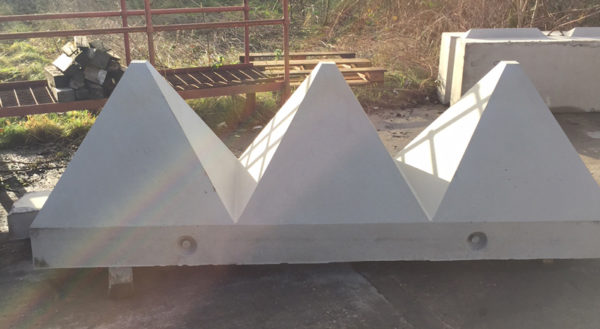Advice from Tim Booth, Leisure Vehicles Officer – NaVCIS
Challenging situations can be seen by some as an opportunity to exploit others and often criminality will increase in such times. Spending some time checking your site security may prevent you from becoming a victim, and the disruption this could bring to your business.
The closure of premises can result in many expensive items / assets being left unchecked for extended periods. Here are some tips for dealerships and other businesses to better protect their businesses from criminal activity while their premises are closed/partially closed.
External premises: securing the perimeter
Key to managing the security of any area is the means used to define and to secure the perimeter. This is particularly important when sites have public roads abutting the areas. Signs should show any visitors that their presence will be monitored e.g:
- CCTV in use (signage should show purpose and who operates the system etc)
- Security patrols
Where perimeters are defined by fencing, then checks should be made of that fencing to ensure it is maintained in good order; any gates should have good standard of locks fitted. Where it is possible, the locks should be manufactured into the gate (mortice type system); where padlocks are used then the locks should have a retainer cable to secure the lock body to post structure.
Vehicle access is a necessity when the site is operational, but once closed down, the opportunity for access should be reduced as much as possible. All other vehicle access routes should be managed by the use of substantial barriers that are not easily moved. (Consider concrete drainage rings / concrete ‘tank traps’ – often referred to as ‘dragon’s teeth’ or hedgehogs).
As part of the regular maintenance of the site, the growth of vegetation / trees around the perimeter should be managed. The planting of ‘challenging’ plants / shrubs like berberis and pyracanthus can create more natural defences. Trees should not be allowed to branch over the site perimeter and be cut back to prevent climbing.
Gravel areas should be raked – again this can give an indication that unauthorised persons have walked across these areas.
Site access
Ensure that any remaining on-site staff only allow persons on to the premises who have a lawful reason to be there. It is likely that criminals would use ‘distraction’ opportunities to suggest that they should access the site. Checks should be made of all ‘visitors’ to confirm their identify / authorisation to be on site.
Where vehicles require access to the site, then these should be checked ‘in’ and ‘out’. Drivers should be asked to allow site staff to check the contents of their vehicles when entering – and driver advised that similar checks will be made on departure. Where drivers decline to accept these conditions, then consideration should be given to preventing that vehicle from accessing the site.
It is unlikely that offenders would choose to carry out stolen property – most will look to utilise vehicles in the commission of their crimes!!
Maintaining a safe and secure environment during ‘close down’ will provide a good starting point for when businesses are allowed to return to more normal business activity.
Dragon’s teeth product:

Hedgehog defenders:

NaVCIS (Vehicle Crime Intelligence Police Service) is a national police unit that works to protect communities in the UK from vehicle finance crime and associated serious and organised crime.
Read the article on touring caravan thefts in 2019, published in the Spring issue of The Business magazine below:
